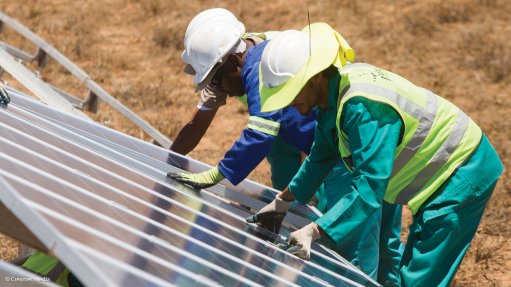Results of survey on barriers to cross-border trade released
The International Chamber of Commerce (ICC) released its survey, What Border Barriers Impede Business Ability? Analysis of Survey on Trade Barriers February 2014, on February 21. The survey highlights common impediments to cross-border trade.
While the ICC acknowledges that the survey results are neither statistically valid nor entirely representative of the hundreds of thousands of organisations that trade globally, its says the survey reveals a set of common prerequisites – such as predictability, reliability and consistency – that international traders seek.
With 88% of the respondents involved in import and export or trade in services (includ- ing freight forwarding, transportation and third-party logistics), the survey reveals a need for greater capacity building, in particular through education and making information more easily available, to ensure that both traders and border control officials follow proper international trading procedures. In addition, the survey results also serve to illustrate the need for an effective customs-business dialogue at national level to find ways to lessen delays in trade processes and shorten release times, as called for by the ICC. The chamber hopes that the survey results will provide useful insights into grassroots border barriers and impediments.
Customs in the National Budget
In the National Budget, presented by Finance Minister Pravin Gordhan on February 26, a number of references were made to customs. The South African Revenue Service (Sars) overhauled its customs management system in August 2013. The new system is fully electronic and significantly reduces the administrative burden on importers and exporters, while improving our ability to detect high-risk transactions and goods. Since its introduction, the system has processed goods valued at more than R1.7-trillion. Border management cooperation, which started during the 2010 soccer World Cup, has deepened. For example, one of the South African ports of entry is being prepared as a pilot for seamless border management, which will lead to enhanced border control and trade facilitation. The one-stop border post at Lebombo will become operational shortly, once the remaining formalities have been concluded.
During 2013, about R1-billion worth of tobacco and cigarettes was seized from 15 non- compliant entities. Twelve criminal cases are being pursued. During the same period, Sars detained 400 containers holding suspected counterfeit clothing, footwear and textiles.
Since electronic processing of customs declarations began in August 2013, goods valued at more than R1.7-trillion have been processed. High-volume scanners will soon be introduced at the Durban and Cape Town ports.
In terms of value-added tax documentation, the customs modernisation programme has eliminated the need for paper-based documents to be generated and issued to taxpayers. The documents that are legally required will be aligned with the modernised customs processes and procedures.
Sars has a responsibility to protect the merchandise trade information that it receives from travellers and traders. In the absence of the Protection of Personal Information Bill being implemented, it is proposed that the Customs and Excise Act be amended to provide for such data protection. Section 101B of the Act, relating to travellers, is already aligned with the expected requirements of the Protection of Personal Information Bill, but additional measures are needed to similarly protect traders and cargo.
Anomalies have been discovered in the way data pertaining to customs and excise duties was previously presented. The 2013 tax expenditure estimates for duties associated with the Motor Industry Development Programme (MIDP), textiles and clothing, furniture and fixtures, and other customs (goods manufactured for exports, television monitors and agricultural goods) for 2009/10 should have been for 2010/11. This has been rectified. In addition, the substantial increases in tax expenditure previously reported for the MIDP and other customs for 2010/11 were an overestimate.
Fuel Increases
In the National Budget speech on February 26, it was announced that on April 2, 2014, the general fuel levy would increase by 12c/ℓ and the Road Accident Fund levy by 8c/ℓ – a total of 20c/ℓ. A further fuel increase will be introduced on the same day, depending on the strength of the rand and the Brent crude oil price. At the time of writing, an increase of 36c/ℓ in the petrol price and 27.2c/ℓ or 28.2c/ℓ in the diesel price was expected to be announced on March 5.
Sugar Duty Increase?
Although no notice has as yet appeared in the Government Gazette, the International Trade Administration Commission of South Africa (Itac) published a media report from Business Day, titled ‘Sugar producers seek import protection’, on its website on February 27.
Vitreous Enamels Tariff
On February 21, Itac published the proposed increase in the rate of customs duty on vitreous enamels from free of duty to 10% ad valorem by the creation of an additional eight-digit tariff subheading.
Comment is due by March 21.
EU GSP Comment
On February 21, Sars published notes on the revised European Union (EU) Generalised System of Preferences (GSP), which excludes South Africa from the preferential tariffs and the alternative arrangements effective January 1. On February 19, Sars published draft customs and excise rules pertaining to the termination of the EU GSP for comment, which was due by March 5.
EU/SA Global Indications Protection
On February 22, an ‘Information Notice – Public Consultation: Geographical Indica- tions from the Republic of South Africa’ appeared in the official journal of the EU. The notice contains a number of wine names, and Honeybush and Rooibos, with Karoo lamb being absent. As mentioned in an earlier instalment of this column, the protection of Karoo lamb under the Merchandise Marks Act is still due. Comment is due by April 22.
Wire Ropes and Cables Dumping
Comment on the sunset review of the anti- dumping duties on wire ropes and cables of a diameter exceeding 32 mm, originating in or imported from the UK and Germany, and on stranded wire of a diameter exceeding or equal to 12.7 mm, originating in or imported from the People’s Republic of China, was due by March 10.
Comments
Announcements
What's On
Subscribe to improve your user experience...
Option 1 (equivalent of R125 a month):
Receive a weekly copy of Creamer Media's Engineering News & Mining Weekly magazine
(print copy for those in South Africa and e-magazine for those outside of South Africa)
Receive daily email newsletters
Access to full search results
Access archive of magazine back copies
Access to Projects in Progress
Access to ONE Research Report of your choice in PDF format
Option 2 (equivalent of R375 a month):
All benefits from Option 1
PLUS
Access to Creamer Media's Research Channel Africa for ALL Research Reports, in PDF format, on various industrial and mining sectors
including Electricity; Water; Energy Transition; Hydrogen; Roads, Rail and Ports; Coal; Gold; Platinum; Battery Metals; etc.
Already a subscriber?
Forgotten your password?
Receive weekly copy of Creamer Media's Engineering News & Mining Weekly magazine (print copy for those in South Africa and e-magazine for those outside of South Africa)
➕
Recieve daily email newsletters
➕
Access to full search results
➕
Access archive of magazine back copies
➕
Access to Projects in Progress
➕
Access to ONE Research Report of your choice in PDF format
RESEARCH CHANNEL AFRICA
R4500 (equivalent of R375 a month)
SUBSCRIBEAll benefits from Option 1
➕
Access to Creamer Media's Research Channel Africa for ALL Research Reports on various industrial and mining sectors, in PDF format, including on:
Electricity
➕
Water
➕
Energy Transition
➕
Hydrogen
➕
Roads, Rail and Ports
➕
Coal
➕
Gold
➕
Platinum
➕
Battery Metals
➕
etc.
Receive all benefits from Option 1 or Option 2 delivered to numerous people at your company
➕
Multiple User names and Passwords for simultaneous log-ins
➕
Intranet integration access to all in your organisation


















